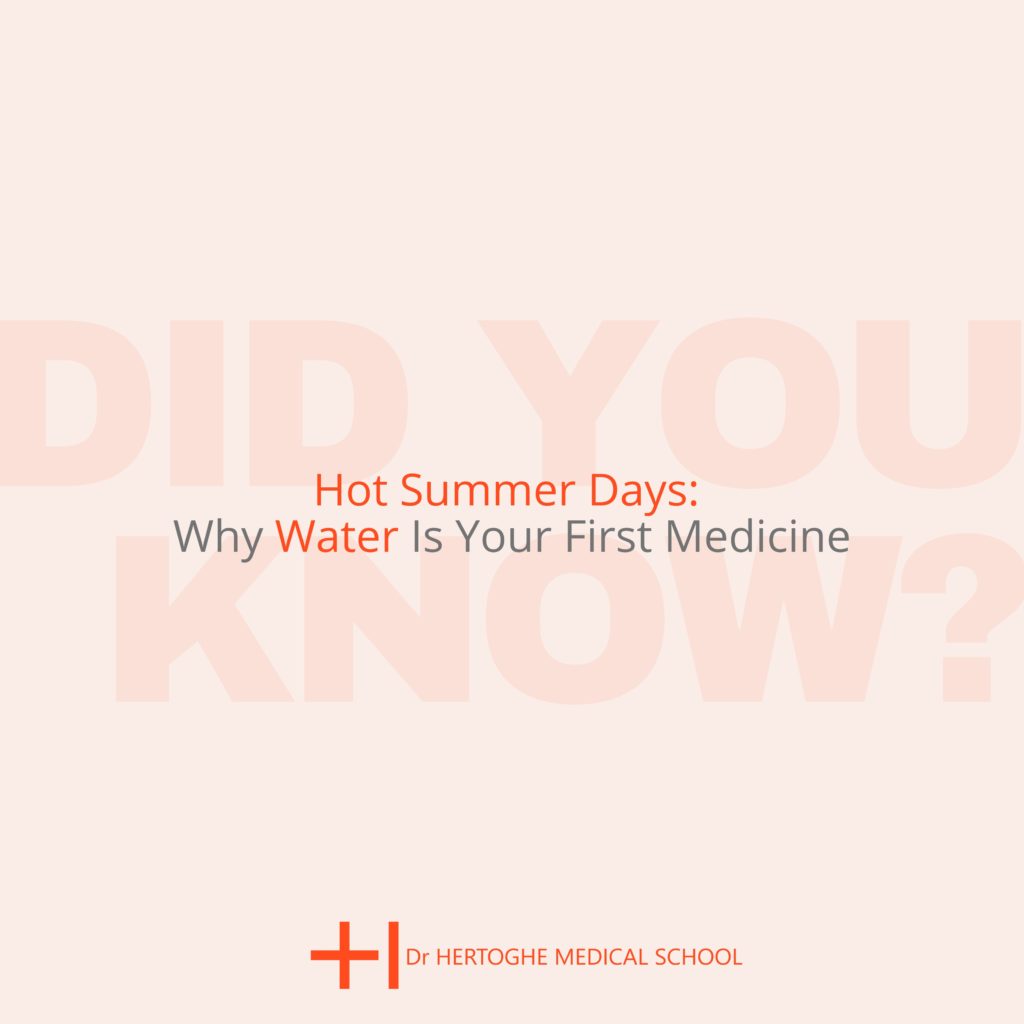Hot Summer Days: Why Water Is Your First Medicine

Water is not just a beverage – it is your most essential nutrient. It supports energy levels, sleep quality, and immune function. The human body is made up of about 60% water, but this percentage decreases with age, dropping to around 50% after age 70. Even mild dehydration, as little as a 2% water loss, can impair both physical and cognitive performance.
During a heatwave, water needs rise significantly due to increased sweating. It is advisable to drink between 2.5 to 3 liters of water per day, depending on your activity level and heat exposure. But hydration doesn’t come only from fluids. Fruits and vegetables contain what is known as “activated water”, rich in minerals, trace elements, and natural sugars that help repair tissues and provide energy. A cucumber or a lettuce leaf is over 95% water, but also provides potassium, magnesium, and vitamin C – all essential for restoring mineral balance after sweating.
In older adults, dehydration is often chronic and goes unnoticed. The thirst mechanism weakens with age, and water is often replaced with coffee, tea, or sugary beverages. This can lead to fatigue, dry mouth, mental fog, and a gradual decline in overall health. Studies show that elderly people hospitalized for dehydration have a 50% mortality rate within the following year.
After physical activity, especially in the heat, plain water is not enough. Sweating causes loss of key electrolytes such as sodium, potassium, and magnesium. Rehydrating with only water can dilute the blood and create imbalances. What helps? Water enriched with minerals, or simply fresh fruits and vegetables post-exercise. They naturally restore hydration, electrolytes, and energy.
Caffeinated and alcoholic drinks might feel refreshing, but they increase fluid loss. Just six cups of coffee per day can raise urine output by 750 ml and lead to depletion of sodium and potassium.
Lastly, flying in hot weather increases the risk of dehydration-related blood clots. Dry cabin air, alcohol, lack of movement, and prolonged sitting all contribute to the risk of deep vein thrombosis. The best prevention includes regular water intake, avoiding alcohol during flights, and walking every 2–3 hours. Most clots occur after flights longer than 14 hours.

